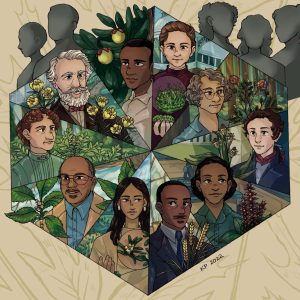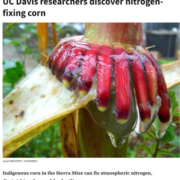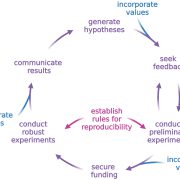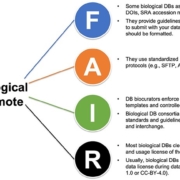Building an inclusive botany: A radical dream
 Recent years have seen a reevaluation of the history and practice of science, including reconsidering who is recognized and why. Science doesn’t exist in a vacuum; it reflects the culture and values of those that practice it. This article, by Mabry et al., is intended to serve as a conversation starter to evaluate scientific botany in light of historical (and ongoing) exclusionary and exploitative practices. The article begins by highlighting the exceptions: plants with names that honor women or Latine, Black, or Indigenous people, and people who against the odds were otherwise recognized for their contributions to botany. The article also discusses plants with problematic names that refer to racist or exclusionary practices. Finally, the authors look forward to opportunities to move towards a more inclusive botany and recommend practices to get there, with a particular focus on specimen digitization. Digital collections are more accessible than those held solely as physical objects, and they also provide opportunities to include additional names (both taxonomic synonyms and Indigenous names) and to recognize the contributions from Traditional Knowledge (for example through Biocultural Labels https://localcontexts.org/). This article will soon be accompanied by learning materials – watch this space! (Summary by Mary Williams @PlantTeaching) ecoevoRxiv https://doi.org/10.32942/X22P51
Recent years have seen a reevaluation of the history and practice of science, including reconsidering who is recognized and why. Science doesn’t exist in a vacuum; it reflects the culture and values of those that practice it. This article, by Mabry et al., is intended to serve as a conversation starter to evaluate scientific botany in light of historical (and ongoing) exclusionary and exploitative practices. The article begins by highlighting the exceptions: plants with names that honor women or Latine, Black, or Indigenous people, and people who against the odds were otherwise recognized for their contributions to botany. The article also discusses plants with problematic names that refer to racist or exclusionary practices. Finally, the authors look forward to opportunities to move towards a more inclusive botany and recommend practices to get there, with a particular focus on specimen digitization. Digital collections are more accessible than those held solely as physical objects, and they also provide opportunities to include additional names (both taxonomic synonyms and Indigenous names) and to recognize the contributions from Traditional Knowledge (for example through Biocultural Labels https://localcontexts.org/). This article will soon be accompanied by learning materials – watch this space! (Summary by Mary Williams @PlantTeaching) ecoevoRxiv https://doi.org/10.32942/X22P51









